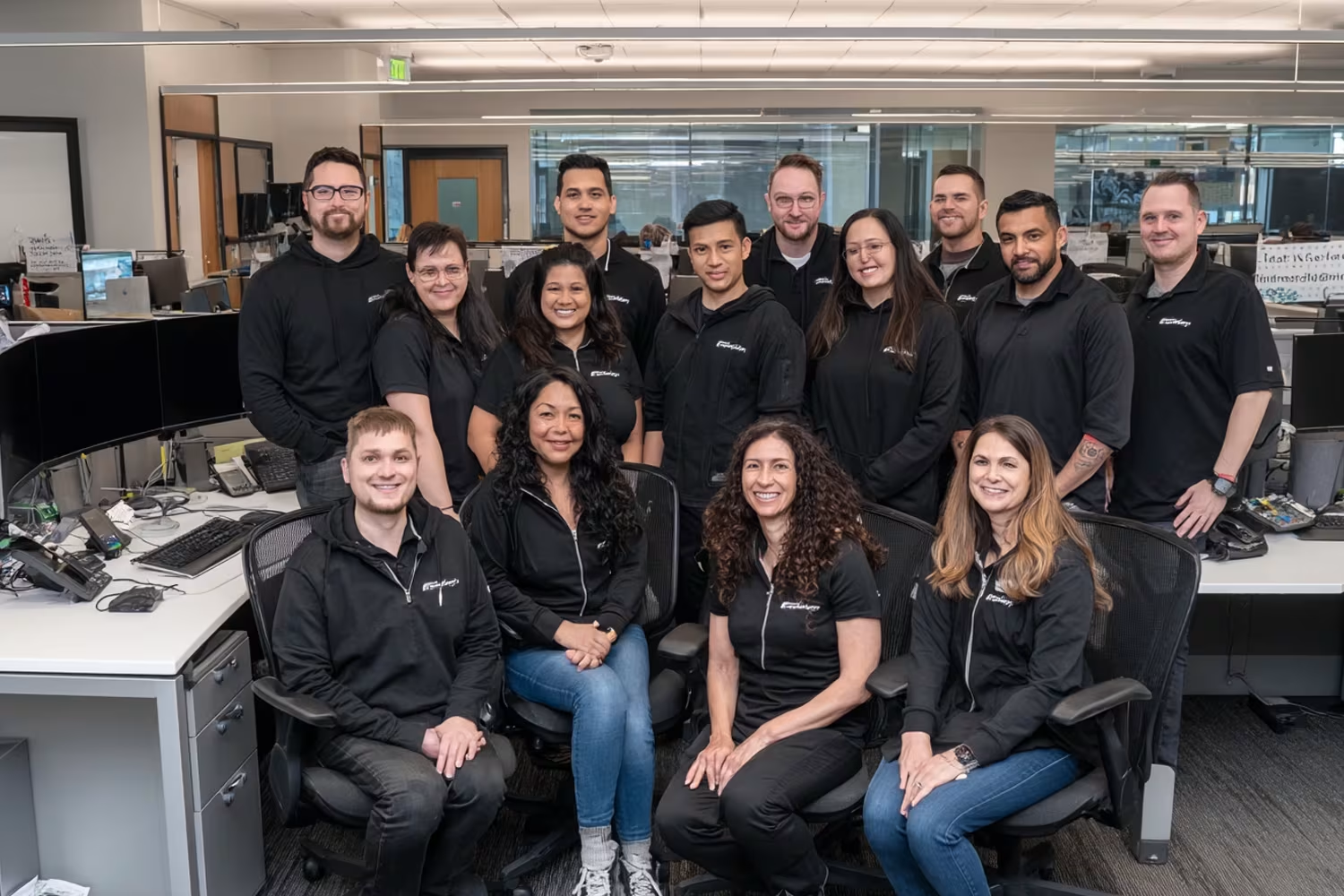
Businesses today face increasing pressure to stay secure, efficient, and productive. That’s where managed IT solutions come in. In this blog, we’ll explain what managed IT solutions are, how they work, and why they’re essential for growing organizations. We’ll also explore topics like cybersecurity, cloud services, and how to tailor your IT support to meet your business needs. Whether you're looking to outsource your IT or reduce downtime, this guide will help you make informed decisions.
What are managed IT solutions?
Managed IT solutions refer to outsourcing your business’s IT operations to a third-party provider. These providers handle everything from network monitoring to data backups, allowing your internal team to focus on core business tasks. This approach is especially helpful for businesses that want proactive support without the cost of a full in-house IT department.
These services are typically delivered under a subscription model, which makes budgeting easier. The goal is to streamline operations, improve security, and reduce the risk of unexpected downtime. With the right provider, managed IT solutions can be tailored to your company’s size, industry, and growth plans.

Exploring managed IT services in depth
Managed IT services cover a wide range of support options. Let’s break down the key areas that make up a complete solution.
Cybersecurity protection
Security is a top concern for any business. Managed IT providers offer tools and services to protect your network from threats like malware, phishing, and ransomware. These services often include firewalls, antivirus software, and employee training.
Fully managed infrastructure
A fully managed setup means the provider handles everything—hardware, software, updates, and monitoring. This ensures your systems are always up to date and running smoothly, with minimal input needed from your internal team.
Managed IT support
Support services include help desk access, troubleshooting, and issue resolution. Whether it's a printer problem or a server crash, having a dedicated support team means faster fixes and less downtime.
Scalable solutions
As your business grows, your IT needs will change. Scalable managed IT solutions allow you to add or remove services as needed. This flexibility helps you stay efficient without overpaying for unused resources.
Downtime prevention
Downtime can cost businesses thousands in lost productivity. Managed IT providers use monitoring tools and proactive maintenance to catch issues before they cause outages.
Optimize system performance
Regular system checks, updates, and performance tuning help ensure your technology runs at its best. This leads to faster systems and fewer disruptions.
Managed network services
Your network is the backbone of your business. Managed network services include monitoring, configuration, and security to keep your data flowing safely and efficiently.
Benefits of choosing managed IT solutions
Here are some of the most important advantages of using a managed IT company:
- Predictable monthly costs make budgeting easier.
- Access to expert support without hiring a full in-house team.
- Reduced risk of cyber threats through proactive monitoring.
- Improved system uptime and faster issue resolution.
- Scalable services that grow with your business.
- More time for your team to focus on strategic goals.

How cloud services fit into managed IT
Cloud services are a major part of modern managed IT solutions. They allow businesses to store data, run applications, and collaborate online without needing physical servers. This not only reduces hardware costs but also improves flexibility.
With cloud-based tools, your team can work from anywhere. Managed IT providers help you choose the right cloud setup, migrate your data, and ensure everything stays secure. This is especially useful for businesses with remote or hybrid teams.
Tailoring your IT strategy for long-term success
Every business has unique needs. That’s why tailored managed IT services are so valuable. A good provider will assess your current systems, understand your goals, and design a plan that fits.
This might include specific cybersecurity tools, custom cloud configurations, or industry-specific compliance measures. Tailored services ensure you’re not paying for features you don’t need while still getting full protection and support.

Business continuity planning and disaster recovery
Planning for the unexpected is a key part of managed IT. Business continuity services help you recover quickly from events like power outages, cyberattacks, or natural disasters.
These plans often include data backups, failover systems, and clear recovery procedures. A managed IT company will test these systems regularly to ensure they work when needed.
Best practices for implementing managed IT solutions
Rolling out managed IT services requires planning. Here are some best practices to follow:
- Start with a full audit of your current IT systems.
- Choose a provider with experience in your industry.
- Set clear goals and expectations from the beginning.
- Ensure staff are trained on any new tools or processes.
- Review performance regularly and adjust services as needed.
- Keep communication open between your team and the provider.

How Unified Technicians can help with managed IT solutions
Are you a business with 50+ employees looking for scalable, reliable IT support? Our team specializes in helping growing companies like yours reduce downtime, improve security, and streamline operations with managed IT solutions.
At Unified Technicians, we tailor every solution to your business goals. Whether you need full infrastructure management or just help desk support, we’re here to make IT simple and effective. Contact us today to learn how we can support your success.
Frequently asked questions
What are the main components of managed IT services?
Managed IT services typically include help desk support, system monitoring, and data backups. These services are designed to keep your systems running smoothly while reducing the need for in-house IT staff.
They also include proactive maintenance and cybersecurity tools to prevent issues before they disrupt your operations. By outsourcing these tasks, you can focus more on your business and less on technical problems.
How does cybersecurity fit into managed IT solutions?
Cybersecurity is a core part of any managed IT solution. Providers use tools like firewalls, antivirus software, and employee training to protect your systems.
They also monitor for vulnerabilities and respond quickly to threats. This reduces your risk of data breaches, ransomware attacks, and other cyber incidents.
What does a fully managed IT environment include?
A fully managed IT setup covers everything from hardware and software to updates and support. It’s a hands-off approach that ensures your systems are always up to date.
This type of service is ideal for businesses that want reliable systems without managing them internally. It also helps reduce downtime and improve productivity.
Can managed IT support help reduce downtime?
Yes, managed IT support is designed to minimize downtime. Providers use monitoring tools and proactive maintenance to catch problems early.
They also offer fast response times when issues do occur. This keeps your business running smoothly and avoids costly disruptions.
How do cloud services integrate with managed IT?
Cloud services are often part of a managed IT package. They allow you to store data and run applications online, reducing the need for physical servers.
Managed IT providers help you choose the right cloud setup and ensure it stays secure. This adds flexibility and supports remote work.
What is the value of tailored managed IT services?
Tailored managed IT services are customized to your business needs. This means you only pay for what you use and get support that fits your goals.
Whether you need advanced cybersecurity or specific compliance tools, a tailored plan ensures your IT works for you—not the other way around.
.svg)





.svg)
